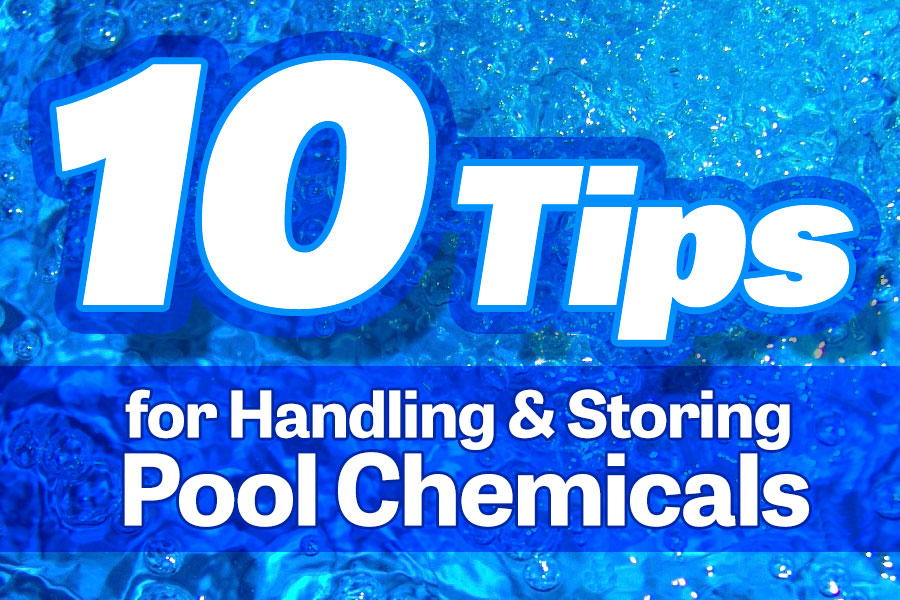
Treating your swimming pool with the proper chemicals is key to keeping the pool clean and beautiful. But it’s also important to make sure you’re using those chemicals safely.
Like any type of chemical or cleaning product, pool chemicals need to be handled with care and stored properly. By following the directions on the label, you can ensure that your pool area will be safe for you and your family to enjoy all season long.
Here are some of our most important safety tips:
- Store all chemicals in a cool, dry, well-ventilated area.
Keep chemicals away from a heat source, electrical source or any area that is prone to flooding. - Keep containers upright and tightly closed.
Always reclose after using. Leaving containers open increases the risk of spilling or children accessing the chemicals. Place all containers flat on the ground, on a stable shelf or a table. - Never mix chemicals together and segregate them when storing to prevent interacting.
Keep all chemicals in their original containers and stored away from each other. Never combine chemicals in a single container. If using measuring cups, use a separate, clean cup for each chemical. - To mix chemicals always some sort of stir stick.
The mixing of chemicals can be a strong dosage of chemicals. Use an old stir stick, board, pole, etc. for the mixing process. Never use your hand or arm! - Keep away from combustible materials and avoid contamination with any foreign matter.
Designate an area exclusively for your pool chemicals. Do not store near combustible materials, such as gas cans and paints. - Follow good housekeeping.
Clean up spilled material promptly. Never return spilled material to the original container. Dispose the spilled material by flushing with water. - Keep chemicals away from open flames.
Do not smoke in storage areas or while handling chemicals. Keep all grills and firepits away from the storage area. - Read all labels carefully.
Each product has its own handling and storage instructions. - Never add water to chemicals when mixing: add the chemicals to water.
Adding water to the chemicals can cause splashing and greatly increase the risk of spilling or getting chemicals in your eyes or mouth. - Rinse out empty containers with water, and then dispose.
If you have excess unused chemicals that you need to get rid of, check with your local waste management authority on proper disposal.